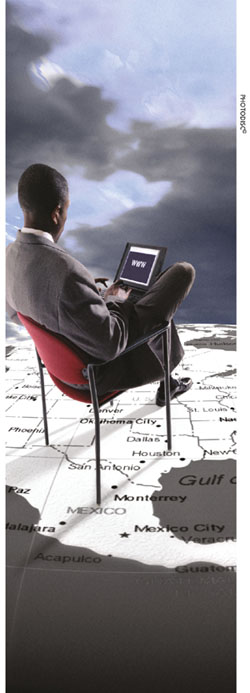NEW FRONTIERS
Ayesha Reza Rafiq explores our wacky and wonderful world
BEING GENDERLESS As civil and corporate entities look for more ways to ensure social inclusion and diversity, the fashion industry is breaking barriers once again – enter the world’s first gender-neutral clothing store in Manhattan.
The Phluid Project incorporates a number of unique aspects in its retail concept and ensures not only a binary breaking clothing option but also a safe space for the LGBTQ community, as well as others who wish to try new fashion concepts and trends.
The store’s mannequins are gender-neutral objects sans any biases. And a unique sizing system ensures that shoppers can easily find clothing to fit them regardless of their gender. The company’s website offers support for the LGBTQ community as well as their families, allies and businesses run by and for them.
With research showing that a third of generation Z identifies themselves as being ‘gender fluid,’ concepts such as Phluid Project are aiming to assist their increased social integration – and indeed, more business for the business of fashion.
RETAIL GAMING Retail is spreading its wings and upping the ante as it enters Snapchat, which for the first time is offering consumers an opportunity to buy products directly from a game on an app.
Conceptualised in collaboration with Adidas and Snapchat, the game (titled ‘Baseball’s Next Level’) features Major League Baseball players sporting their own limited edition gear from Adidas’ 8-Bit collection. When they play the game online or on the Snapchat app, fans can purchase the gear (viz. cleats) directly through the game.
 This partnership marks a milestone in retail and marketing history, as it’s the first time a company has sold products on Snapchat.
This partnership marks a milestone in retail and marketing history, as it’s the first time a company has sold products on Snapchat.
With nearly 60 percent of gen Z shoppers exposed to new products through social media, aggressively pursuing a marketing policy geared for platforms such as Snapchat signal the coming of age of a new retail target market.
FEELING SHEEPISH While the fashion industry is often touted as one of the least ecologically sustainable, one retail line is labelling itself as the ‘world’s first carbon negative fashion brand.’
Sheep Inc. in New Zealand offers customers high quality winter wear made from merino wool while drawing attention to issues such as the origin and sustainability of its fashion products.
Customers can scan the tag on what they buy to see information related to the manufacturing process and carbon footprint of products, as well as the sheep their wool came from.
The company is attempting to create greater awareness of and commitment to carbon negative fashion, as well as ensuring transparency about the product’s journey from source to retail. And clients will continue to receive regular updates about the sheep including their whereabouts, health, care etc. in a bid to create a more humane approach to fashion overall.
As Sheep Inc. attempts to instil environmental consciousness in its business model, the company chooses to work solely with environmentally-friendly farms and reinvest a percentage of revenue in biodiversity projects around the globe.
Though the price point of Sheep Inc.’s products is relatively high, they are designed to last a lifetime, offsetting cheap and fast fashion that often contributes to landfills. Such products also help raise awareness about investing not only in fashion but the environment as well.
WRAPPING CANDY With plastics continuing to lead the environmental impact debate, global FMCG giant Nestlé has come up with a novel formula to discourage candy wrappers from ending up in landfills.
Currently, the company is piloting new paper based packaging for the brand’s KitKat line of chocolates. Nestlé is encouraging consumers to turn the wrappers into paper cranes that are ubiquitous in Japanese culture, instead of throwing them away.
Paper cranes have long been hailed as the symbol of hope and healing in Japan. They’re found everywhere and the eco-friendly wrappers contain instructions on how to fold them into cranes. It is hoped that this effort will ensure the paper used for the cranes is recycled while averting paper waste at the same time.
As part of the push to move to 100 percent recyclable or reusable packaging by 2025, Nestlé estimates that the shift to paper wrappers for KitKat alone will reduce plastic use by 380 tons.
GALAXY VEGAN While many food products such as butter and cheese cater to the vegan market, milk chocolate is one item that vegans say they miss. While vegan chocolates are available in the market, it’s an area that major candy manufacturers have largely ignored until now.
As businesses increasingly aim to expand retail share while catering to consumer diversity and tastes, Mars is set to break barriers in this market with the introduction of its Galaxy vegan chocolate bar.
The three flavours – smooth orange, caramel and sea salt, and caramelised hazelnut – went on the shelves in November at Tesco, Ocado and Amazon in the UK. But they are a pricier alternative to the regular Galaxy bars.
The company is also debuting eco-friendly packaging in its UK product range with a compostable film packaging made from wood fibre. It goes without saying that the vegan space is gathering momentum.



